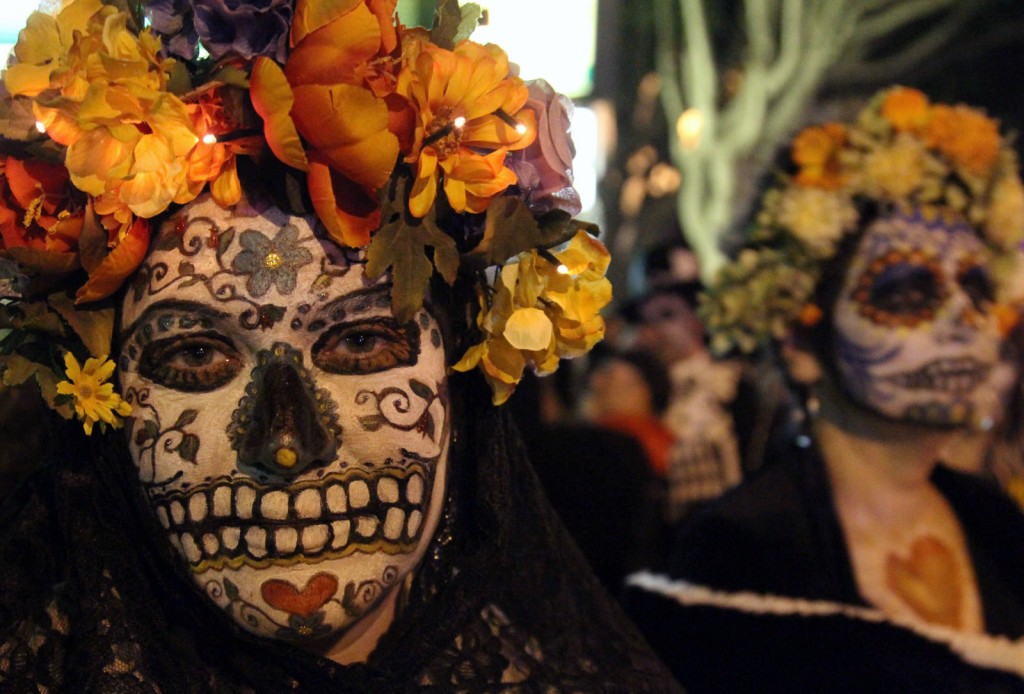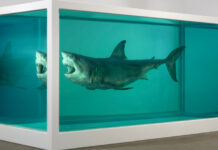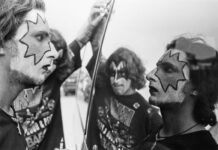“What is constant in history is greed and foolishness and a love of blood”
All the pretty horses, Cormac McCarthy
~~~~~~~~~~~~~~~~~~~~~~~~~~
“You don’t know me”, Jerome said. “You think you do. No one does!”
He’s right. When we meet somebody, we form automatically a picture about them; Stereotypes and prejudices and random similarities with other people we’ve met before kick in.
But with every man there is more than meets the eye. Beneath the surface, behind the mask, the persona that they have taken on to walk the streets, there is a lot more that you could ever imagine.
Most of the times we can’t figure out our own self, how dare we claim that we’ve got the other’s number?
~~
I was working as a barman at the Garden, an outdoor spot in Naxos when I met Jerome. He was a Dutch surfer, thirty years old more or less. Short and wiry, a very thin fellow. He had been around the world surfing and he had landed up at Cyclades; until he moves on.
He was giving lessons in the mornings and he was surfing in the afternoons. At nights he was coming to the Garden, always chirpy and smiling, almost like a fool. He would have a beer, two at most. Before midnight, he was gone.
One night (it was the 11th of July but I caught on that many years later) a different Jerome came to the Garden. He wasn’t smiling and he looked plastered. Moreover, the time that he came – two in the morning – was out of his character.
He sat and asked me to give him the strongest booze available. He wanted to get sloshed. I gave him ouzo to drink.
He chugged it down. He opened his rucksack and produced a teddy bear. One eye was missing. Its fabric was worn out and the improvised amends with discordant threads, in different colours, were prominent.
He put it on the bar and his eyes were glittering; Jerome’s eyes. He turned and looked at me with these eyes. I poured gin tonic for me and ouzo for him.
~~
I’m writing this from my balcony, a Saturday night. At the penthouse of the next apartment building, some adolescents are having a party. They whoop, they sing, they laugh and they distract me. A girl is laughing like a tropical bird. Screeches and clap. Thirteen floors above the earth, fears and whispers for a crash-landing.
~~
-“OK, I think you’ve got something to tell me”.
-“Adnan saved my life”, said Jerome pointing at the teddy bear.
-“You were surfing in Tenerife and two white sharks pounced and…”
-“Adnan”.
-“…and Adnan fought them off?”
My line rose no laughter.
-“It’s a tough day for me”.
-“I figured it out myself. You want to talk?”
-“I’m trying”.
He took another long pull. I heard many confessions at the bar of the Garden, most of them from people that I knew only their first name; sometimes even that was superfluous.
A barman is a better listener than a friend, a psychoanalyst or a confessor. He won’t ask you to listen to his own sins too, he doesn’t charge 40 euros per hour and you don’t ask him for forgiveness.
He’s a well where you howl your agony while under the influence.
~~
Having already read No Country for Old Men and The Road, it was hard to imagine that the same writer could have written another one, equally good, novel. But Cormac McKarthy is not just a writer.
In Blood Meridian blood is all over the place.
A mercenary squad sweeps the area between Mexico and Texas. Headhunters, slaying Apache and getting paid in gold for each scalp – man’s, woman’s or child’s.
Soon the blood becomes more enticing than gold, so they kill everybody in their wake.
McCarthy narrates the slaughters without taking delight in them, but he also doesn’t convict them. In between the killings, he squeezes in lyrical depictions of the sceneries of Arizona, Mexico, the desert, the forests, the mountains, the stars.
And when you cool down a bit, taking in the scenery, there comes an attack at a camp, where the headhunters split the skulls of the babies in two.
Blood, bloodlust and gold.
The mercenaries communicate using doublespeak and gestures, more savage than the ones they are hunting down.
There is no salvation or catharsis. Only blood, the incessant line of blood which began when the first hominid crushed the skull of another one with the first tool, the gun.
Man didn’t utilise the first tool they made to feed themselves, but to kill.
~~
“I got him since I was in the army”.
“Did you join the army?”
“Why? Don’t you?”
“Yes, but I thought that in the Netherlands…”
I was wrong. In the Netherlands there is the option of civilian service, but it’s obligatory nonetheless. At least it was in 1995 when Jerome presented himself for service. Back then at his twenties he decided to join the Blue Helmets.
“I didn’t know what war was like”, Jerome said. “I thought they would just take us somewhere and everything would came to a halt. United Nations, assurance, security”.
When he said these words, tears welled up. He asked me for more drink to go on.
“We did the training, everything was fine. Shortly after, they told us we would go to Yugoslavia. Truth be told, I didn’t know where exactly it was. I had gone surfing in Greece. I figured that, roughly, Yugoslavia would be somewhere around there”.
~~
The children shout: The cake, the cake!
It’s someone’s birthday, turning sixteen or perhaps eighteen. A boy raps ungracefully. Then they listen to Vasilis Karras or something like that.
Unfortunate party, crappy music and we ran out of wine so fast.
~~
Jerome grasped what war really is, what humans are like, when he went to Yugoslavia. They were running behind their trucks and begging for a can of food. In the streets they were spotting bodies dismembered by mines.
‘Who wants cake?’ roars the boy.
Refugees everywhere, trails of refugees like silent rivers. Leaving behind their home and life, becoming slaves in the book of history.
The word “slave” origins from Slav. And in Greek is derived from Sklaveni.
“That’s what war is like”, I told Jerome.
“You can’t get how war is like”, he retorted incensed.
“The humans!” he said fixing his glance somewhere in the distance, then he half closed his eyes and pursed his lips as if he was in pain, as if he was hating.
“We were in the village when they surrounded it. We were supposed to protect them. The Serbian sent a message to our commander. If we didn’t abandon our posts, he wouldn’t be responsible for what might happen to the Dutchmen. We were less than a hundred.
The people in the village were begging us to stay there and not abandon them. Our commander ordered us to climb on the trucks. Outside the wolves, inside the sheep. The women were falling at our feet, the men were crying, not to go.
But we did”.
Jerome caught the teddy bear.
“A little girl, I don’t know how old she was, five, six, seven, I have no idea, ran to the truck and threw Adnan in. I caught it. She called out something, I couldn’t understand. I asked somebody next to me who could. He was crying too. We all were. ‘What did she say?’ I asked him. ‘She begged you to look after her teddy bear’. Take care of her teddy bear then. And we left Srebrenica behind”.
~~
In Bloody Meridian one of the central characters is a boy. His name is never mentioned, he’s just a boy.
The other is the Judge, a massive man completely bereft of body hair, speaks many languages, is versed in all sciences and glorifies the war. He kills with love as if he’s trying to deliver them from their meager flesh.
The Judge is the Evil personified, the Satan and God rolled in one. No one gets away from him.
~~
“Every year”, Jerome said, “all of the Dutchmen who were there go to Srebrenica. But I can’t. Do what? Say what?”
“Blood. They gathered all men and boys in the stadium and executed them. The women, those who were not raped, were expelled. Because they were Muslims whereas they were Christians. As if there is a God feeding on the infidels’ blood. If such a God existed, wouldn’t be worth a damn”.
They killed 8.000 people. Men and boys. Some of them were like the kids who listen to the crappy music at the penthouse and roar about the cake. They killed children.
Thirteen floors above the earth. Six feet under in mass graves.
~~
McCarthy’s novel is bookended with the Judge dancing and shouting that he will never die. The Judge is the war, the murder, violence, blood.
Out in the Arizona desert the vagabonds are wandering. The boy is yet another man, nameless, a slave in the pages of history.
~~
Jerome paid and put the teddy bear back in his rucksack.
“You don’t know what war is”, he told me. “You have no idea what humans can do. And me… You don’t know me. You think you do. No one does!”
He got up stumbling, a little to the right and a bit to the left, finally he balanced himself.
Why did Adnan save you?” I asked him.
“I’ve got someone to take care of; otherwise I would have killed myself”.
He turned around and walked away, staggering.
~~
The party was over. Someone turned into sixteen years old. And Jerome goes surfing to erase from his memory a sea of blood. And the mercenaries keep slaying the Indians in Mexico, today, now.
“When I was in school I studied biology. I learned that in making their experiments scientists will take some group -bacteria, mice, people – and subject that group to certain conditions.
They compare the results with a second group which has not been disturbed. This second group is called the control group. It is the control group which enables the scientist gauge the effect of his experiment: to judge the significance of what has occurred.
In history, there are no control groups. There is no one to tell us what might have happened.
It is supposed to be true that those who do not know history are condemned to repeat it. I don’t believe knowing can save us.
What is constant in history is greed and foolishness and a love of blood”
Footnote: Jerome is a real person. I don’t know if he still lives in Naxos or if he went surfing to Tenerife. I don’t know if he made it to go back to Srebrenica.
~~~~~~~~~~~~~~~~~~~~~~~~~~~~~~~~~~~~~~~~~~









